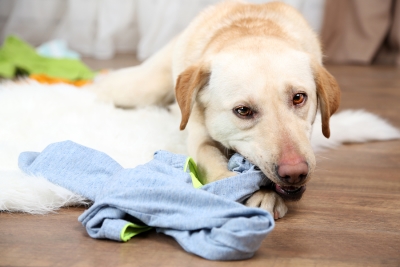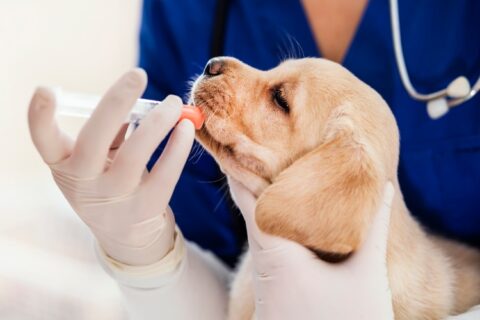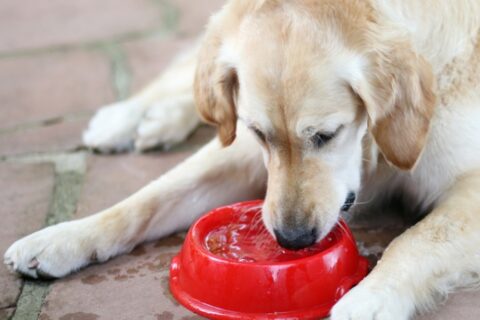Spotlight on Destructive Chewing in Dogs
When Fido won’t stop chewing on your new couch cushions, shoes, or even walls, it can be very frustrating, not to mention costly. Fortunately, there are some simple reasons and solutions for this destructive chewing. Consult your veterinarian near Campbell for additional tips and advice.
Normal Chewing
When dogs chew, they’re actually performing what millions of years of predator instinct have instilled in them. Dogs and wolves are meant to chew bones, and even sticks, to keep their jaws strong and their gums healthy. This is a normal behavior to them, and you can encourage it by giving them appropriate items to chew on. Bones and chew toys are specifically made to withstand dogs’ and puppies’ sharp teeth. Just make sure that the bones and chew toys are not a choking hazard; some dogs require supervision or they will swallow the whole thing!
Identifying the Reasons
When seeking behavior modification in dogs, you should always try to identify the reason for their destructive behavior. Are they left alone often, with no company or toys to play with? If your dog is stressed, either from isolation, illness, or separation anxiety, it may be lashing out in the form of chewing. Also, consider that maybe your dog is hungry and searching for food wherever they think they might find it. If they’re a puppy, they could be teething. Chewing on objects can help to relieve that pain. There might be any number of reasons why your dog is chewing destructively. When you take your dog to the pet hospital, your veterinarian will ask questions to try to identify the cause.
Solutions to Destructive Chewing
One of the biggest ways to discourage your dog’s destructive chewing is to encourage productive chewing. Give your dog plenty of chew toys and appropriate chewing bones. Keep any items your dog loves to chew but shouldn’t out of the way or hidden in a closet. Document when and where your dog chews, and see if you can change the circumstances, such as not leaving them alone as often. If your dog is social and enjoys playing, visiting a local dog daycare could be a great option to help distract your dog from inappropriate chewing. Rather than anxiously gnawing on your favorite shoes while you’re at work, your furry friend could be running and playing tug-of-war with other dogs!



